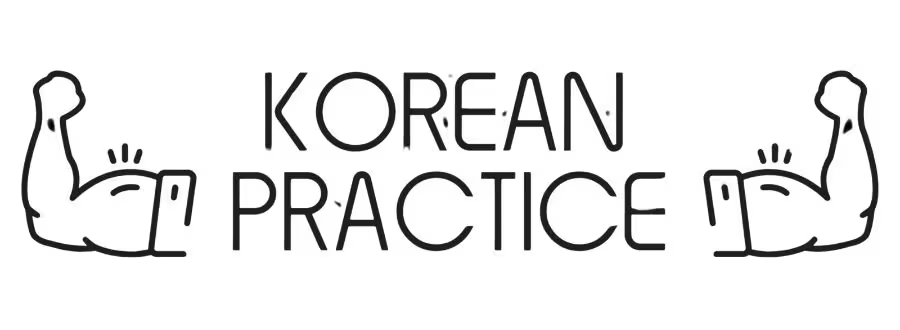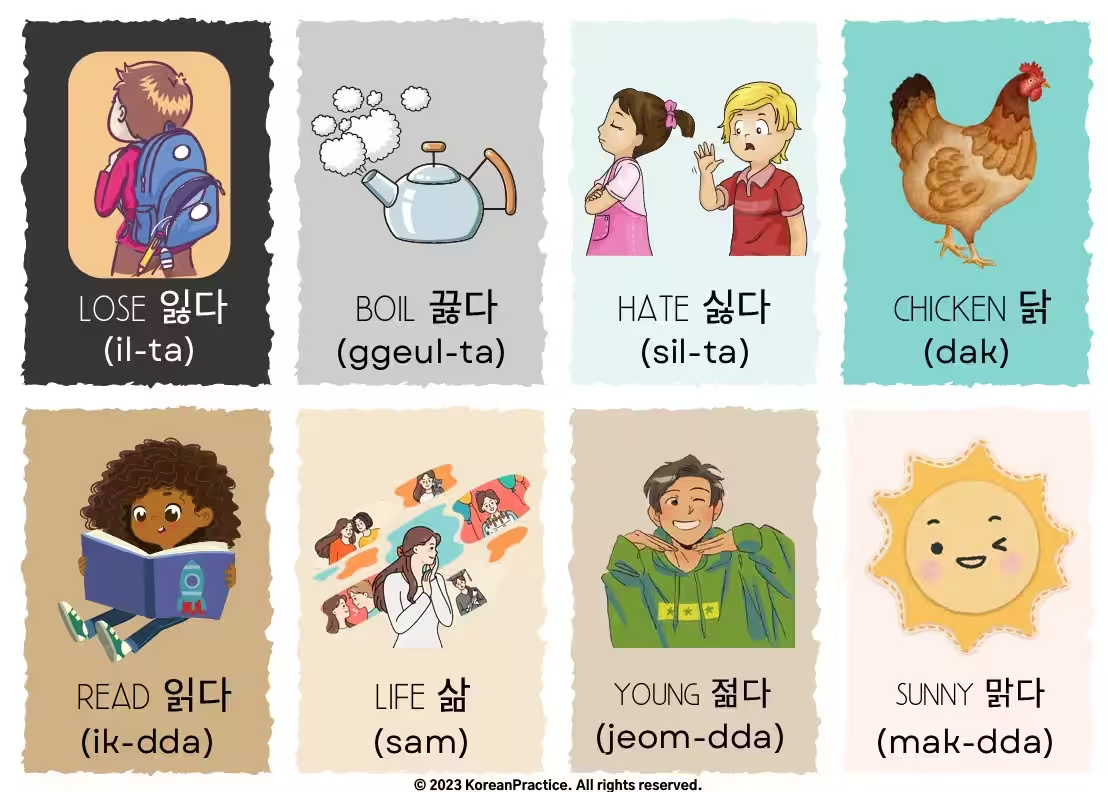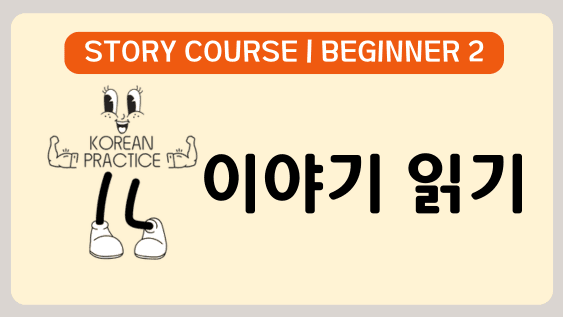Table of Contents
Introduction
When you want to talk about your feelings in Korean, one of the first things you learn is how to say like in Korean. But here is something important: Korean has not just one, but two main ways to say “like.” These are:
- 좋아하다 (joahada) = to like (a verb)
- 좋다 (jota) = to be good (an adjective)
Both are used often, but they work a little differently. In this blog, I will explain the difference in a very simple way, then show you how to use them with easy examples. We’ll also cover common phrases like how to say I like in Korean, do you like in Korean, like you in Korean, and even I don’t like in Korean. By the end, you will know how to use them just like native speakers do.
좋아하다 vs. 좋다
Let’s compare the two words.
좋아하다 is an action word (verb). It means you actively like something. For example:
- 나는 피자를 좋아해.
(I like pizza.) - 저는 음악을 좋아해요.
(I like music.)
좋다 is a describing word (adjective). It means something is good or nice. It can also mean you like it when you add you, but in a softer way.
- (나는) 피자가 좋아요.
(I like pizza / Pizza is good.) - (저는) 이 노래가 좋아요.
(I like this song / This song is good.)
▶ Easy Tip:
- If you say X를/을 좋아해요, it means “I like X.”
- If you say X가 좋아요, it means “X is good.”
Both can show liking, but the grammar is different.
In everyday conversation, Koreans often drop the subject (나 / 저) and just say:
- 피자 좋아해. (I like pizza.)
- 이 노래 좋아. (I like this song.)
Example Sentences:
Original Korean Sentence
나는 피자를 좋아해.
Pronunciation Guide
나는 (na-neun) 피자를 (pi-ja-reul) 좋아해 (jo-a-hae).
Meaning and Context
나 (I) 는 (topic marker; the sentence is about me) 피자 (pizza) 를 (object marker; pizza is my object) 좋아해.(like; informal/casual form – used with close friends or younger people).
English Translation
I like pizza.
How to Say “I Like in Korean”
Now let’s answer the big question: how to say I like in Korean.
In textbooks, you often see:
- 나는 좋아해요 (na-neun joa-hae-yo) = I like
But here’s the thing: in real conversations, Koreans usually drop the subject (like “I” or “you”) because it’s already clear from context.
So instead, people just say:
- 좋아해 (joa-hae) = I like it (casual)
- 좋아해요 (joa-hae-yo) = I like it (polite)
Natural Examples
- 피자 좋아해.
(I like pizza.) - 음악 좋아해요.
(I like music.)
Yes, you can say 나는 피자를 좋아해 or 저는 음악을 좋아해요, but it sounds more natural without the subject in everyday talk.
💕 Blind Date in Korean: Learn the Word Sogaeting and Korean Dating CultureWatch this short story video to see Like in action

How to Say “Do You Like in Korean”
Next, let’s look at do you like in Korean.
To ask questions, Koreans usually just raise their voice at the end. You don’t always need to say “you.”
- 피자 좋아해?
(Do you like pizza?) - 영화 좋아해요?
(Do you like movies?)
This is short and natural.
You can also add 너 (“you”) if the situation makes sense, for example when talking directly to a friend:
- 너 피자 좋아해?
(Do you like pizza?)
That still sounds natural. But Koreans often leave out 너 because the subject is already clear.
On the other hand, using 당신 (“you”) is different. In everyday conversation, it almost never sounds natural. Saying:
- 당신은 영화 좋아해요?
would feel strange. The word 당신 is not usually used in daily questions like this. It can even feel overly formal or distant. So it’s better not to use 당신 when asking if someone likes something.
👅 Taste in Korean: Complete Guide to 5 FlavorsHow to Say “I Like You in Korean”
Now for a very important phrase: like you in Korean.
The most natural and common way is simply:
- 좋아해.
(I like you. / I like you as a friend or more.) - 좋아해요.
(I like you. Polite tone.)
You can also say:
- 너 좋아해. (I like you.)
This is natural with friends. - 너를 좋아해. (I like you.)
Also correct, and emphasizes the object a little more. - 나는 너를 좋아해. (I like you.)
This is also correct, but it can sound heavier, like you are stressing the subject “I.”
Example Sentences:
Original Korean Sentence
나는 너를 좋아해.
Pronunciation Guide
나는 (na-neun) 너를 (neo-reul) 좋아해 (jo-a-hae).
Meaning and Context
나 (I) 는 (topic marker; the sentence is about me) 너 (you) 를 (object marker; my object is you) 좋아해 (like; casual form and its basic form is 좋아하다).
English Translation
I like you.
⚠️ Note: Saying 너 좋아해요 is not natural. If you want a polite version, just say 좋아해요 without “너.”
So overall, all of these are possible and natural in Korean:
- 좋아해 / 좋아해요
- 너 좋아해
- 너를 좋아해
- 나는 너를 좋아해 (sounds a bit stronger)
How to Say “I Don’t Like in Korean”
This is where Korean gets a little tricky. In the positive form, you can use both 좋아하다 and 좋다 to mean “I like.”
- 나는 케이크를 좋아해요.
(I like cake.) - 나는 케이크가 좋아요.
(I like cake.)
Both are natural and correct.
But when you make them negative, there’s a difference:
- 나는 피자를 안 좋아해요. ✅
(I don’t like pizza.) → This sounds natural and is the standard way to say you don’t like something. - 나는 피자가 안 좋아요. ⚠️
(This pizza is not good / The pizza is bad.)
Grammatically, it’s not wrong. But in daily conversation, 안 좋아요 with food or objects is usually understood as “bad in quality” (maybe spoiled or not tasty), not “I don’t like it.”
So, the safe and natural way to say “I don’t like X” is:
X를/을 안 좋아해요.
If you want to use 좋다, make sure to include 나는 so your meaning is clear, but remember that most Koreans will hear it as a comment on quality rather than preference.
Example Sentences:
Original Korean Sentence
나는 피자를 안 좋아해요.
Pronunciation Guide
나는 (na-neun) 피자를 (pi-ja-reul) 안 (an) 좋아해요 (jo-a-hae-yo).
Meaning and Context
나 (I) 는 (topic marker; the sentence is about me) 피자 (pizza) 를 (object marker; my object is pizza) 안 (not) 좋아해요 (like; polite form).
English Translation
I don’t like pizza.
좋아하다 Examples
Here are some examples with 좋아하다:
- 나는 아이스크림 좋아해.
(I like ice cream.) - 개 좋아해요.
(I like dogs.) - 난 책 읽기 좋아해.
(I like reading books.)
좋다 Examples
And now examples with 좋다:
- (저는) 봄이 좋아요.
(Spring is nice / I like spring.) - (나는) 한국어가 좋아요.
(Korean is good / I like Korean.) - (난) 이 영화 좋아.
(This movie is good / I like this movie.)
Comparing Likes
Sometimes we want to compare things. In Korean, you can use 더 (deo) which means “more.”
- 고양이보다 개를 더 좋아해.
(I like dogs more than cats.) - 수학보다 영어가 더 좋아요.
(I like English more than math.)
Example Sentences:
Original Korean Sentence
수학보다 영어가 더 좋아요.
Pronunciation Guide
수학보다 (su-hak-bo-da) 영어가 (yeong-eo-ga) 더 (deo) 좋아요 (jo-a-yo).
Meaning and Context
수학 (math) 보다 (than) 영어 (english) 가 (subject marker) 더 (more) 좋 (to like) 아요 (polite ending; I’m telling you polite and friendly).
English Translation
I like English more than math.
Literal Translation
(I) like English more than math.
From My Original Story Style Breakdown™ — A New Way to Truly Understand Korean
This is just one sentence from a complete learning system you won’t find anywhere else — designed to help you understand Korean naturally, without getting lost in grammar rules. You can choose between Quick Learning for a fast overview, or Deep Learning for a step-by-step breakdown.
When you can truly understand Korean sentences this way, speaking becomes much easier.
🚀 Quick Learning

Original Korean Sentence
사자가 코끼리를 잡아요.
Pronunciation Guide
사자가 (sa-ja-ga) 코끼리를 (ko-ggi-ri-reul) 자바요 (ja-ba-yo).
English Translation
The lion catches the elephant.
Literal Translation
Lion catch elephant.
Quick Reference
사자가 (lion) 코끼리를 (elephant) 잡아요 (catch).
💡 Need more details? See “Deep Learning” below!
🔍 Deep Learning
Meaning and Context
사자 (lion)
→ The lion — the one taking action now in the story.
가 (subject marker)
→ Points out that the lion is doing the action.
코끼리 (elephant)
→ The one the action is done to.
를 (object marker)
→ Shows that the elephant is the object being caught.
잡 (to catch, grab, take)
→ The action — the lion catches or grabs the elephant.
아요 (polite ending)
→ I’m telling you this in a polite and friendly way.
Real-Life Usage
잡아요 is common when talking about catching or holding something.
Pattern Practice
1. 사자가 토끼를 잡아요.
2. 고양이가 쥐를 잡아요.
3. 아이가 공을 잡아요.
4. 강아지가 공을 잡았어요.
FAQs (What You Might Still Wonder About)
Can I use 좋아하다 for people and things?
Yes! You can say 음악을 좋아해요 (I like music) or 너를 좋아해 (I like you). The verb 좋아하다 works for both objects and people.
Is it wrong to say “나는 좋아해요” (I like) without an object?
It’s not wrong, but it feels incomplete. Koreans will expect you to mention what you like, such as 나는 영화를 좋아해요 (I like movies).
How do I politely ask “Do you like…?” in Korean?
Simply say … 좋아해요? like 커피 좋아해요? (Do you like coffee?). Adding 너 is fine with close friends (너 커피 좋아해?), but never use 당신 in this situation.
Can I say “I Like you in Korean” as 나는 너를 좋아해요?
Yes, it’s correct. But in daily life, Koreans usually keep it short: 좋아해 (I like you). That already carries the full meaning.
What’s the difference between “좋아해요” and “좋아요”?
좋아해요 means “I like (something).”
좋아요 means “It’s good.” Both can overlap, but the grammar and nuance are different.
Why do Koreans drop the subject so often, like “I” or “you”?
Because the meaning is clear from context. Instead of 나는 피자를 좋아해요 (I like pizza), most people just say 피자 좋아해요. It’s shorter and more natural.
Final words
Let’s put everything together:
- 좋아하다 = to like (verb) → 피자 좋아해요. (I like pizza.)
- 좋다 = to be good (adjective) → 피자가 좋아요. (Pizza is good / I like pizza.)
- 좋아해 / 좋아해요 = I like (subject often dropped)
- 좋아해? / 좋아해요? = Do you like?
- 안 좋아해 / 안 좋아해요 = I don’t like
- 너 좋아해 / 좋아해요 = I like you
Now you know the two main ways to say “like” in Korean—using 좋아하다 as a verb and 좋다 as an adjective. You also learned how Koreans naturally drop the subject, when it’s okay to use 너, and why 당신 usually doesn’t work in everyday conversation.
Learning these small details is what makes your Korean sound natural, not just correct. At first, it may feel tricky to choose between 좋아하다 and 좋다, but the more you practice with real examples—like pizza, coffee, music, or even “I like you”—the easier it will become.
✨ So keep practicing a little every day. Say your favorite foods, hobbies, and people in Korean. Soon, you won’t even have to think about it—saying “I like” in Korean will just feel easy and natural!










